‘1776’ Review: Adams & Eves
Hats off to the sparkling ensemble of a '1776' revival that pinpoints the foresight and blind spots of the Founding Fathers.
By André Hereford on July 12, 2023 @here4andre

Oh, what a momentous time in this nation’s history to contemplate what on earth the founding fathers were thinking when they envisioned these United States of America.
Last year’s radical Broadway revival of Tony-winner 1776 (★★★☆☆), directed by Jeffrey L. Morgan and Diane Paulus, also thrust front-and-center the question of whom the founders were thinking, by presenting an entire cast of performers who identify as female, trans, or nonbinary, many of them people of color, portraying the white men who convened to create a country.
Much of the Broadway cast continues in the national touring production, currently at the Kennedy Center, though they’re almost all trying on different roles.
For anyone missing the point that this won’t be your mama’s Adams, Franklin, Jefferson, or Hancock, the cast, en masse, make a show at the start of stepping into the coats, stockings, and stiff, buckled court shoes of the “framers of independence.”
That framework, we know, didn’t include independence for every person in America, and it would be hard to forget that even with traditional casting — perhaps even moreso in this day and age.

But Morgan and Paulus’ primary update poignantly serves to remind that the sage Revolutionaries depicted in Sherman Edwards and Peter Stone’s 1969 musical-comedy held a very narrow view of what constituted an American, and, nearly 250 years later, far less wise men still think it’s for them to debate who is and isn’t a person worthy of nationhood.
So it’s with a powerful sense of dignity that the members of this diverse ensemble don those coats and shoes, and essay the nation’s origin story, built around John Adams (Gisela Adisa) trying to convince the delegates of the Second Continental Congress to vote on a resolution for independence.
From the get-go, Adams’ fellow delegates are screaming, “John, sit down!” He’s obnoxious and disliked, he’s told on several occasions, though those aren’t exactly the leading traits of Adisa’s performance in the part.
Her Adams is passionate — about building a nation, and loving his wife, Abigail (portrayed opening night by Brooke Simpson, standing in for Tieisha Thomas) — and just energetic enough to keep the narrative ball moving. The proceedings perk up more when momentum is handed to star players like Shawna Hamic, reviving her bravura Broadway turn as delegate Richard Henry Lee of Virginia.
Hamic has a grand old time with Lee’s hilariously self-referencing “The Lees of Old Virginia,” accompanied by Liz Mikel’s dotty and delightful Ben Franklin, ever reliable for a laugh and for Franklin’s authoritative sway over members of this august body.
Franklin and Adams don’t hold sway over the all-but-hissing villains of the piece: Joanna Glushak’s prim, pantherish royalist, John Dickinson of Pennsylvania, and Kassandra Haddock’s icy, smooth-talking South Carolina slaveholder, Edward Rutledge. The syrup drips a little too thickly from Rutledge’s tongue, while Glushak sharpens Dickinson’s delivery to a fine, ruthless edge.
In one of the few scenes where debate and rancor are quieted to consider the losses a young nation has already faced, Candice Marie Woods (standing in on opening night for Simpson as the Courier) puts over a beautiful “Momma, Look Sharp,” a highlight of Edwards’ pithy, tuneful score, and another poignant reminder that all kinds of people have died fighting for the United States of America.
Again, who or what is included in that concept remains an open question to many modern-day Dickinsons, politicians, and Justices of the Supreme Court. The directors address that question in contemporary terms with a video montage projected onto Scott Pask’s humdrum set during “The Egg,” the song in which Franklin leads the company to cheer the “chirp, chirp, chirp” of a newly hatched nation.
Clipping through a brief, uplifting history of progress made in the United States doesn’t capture the struggle to “birth a nation” with nearly the succinct impact of the show’s final gesture, when the cast sheds their coats and characters and proudly faces the audience again as their true selves.
1776 runs through July 16 in the Kennedy Center’s Eisenhower Theater. Tickets are $45 to $155. Call 202-467-4600, or visit www.kennedy-center.org.
‘In the Heights’: Signature’s Bustling Barrio
Every person on the block has a story and a song about how they got there in Signature’s high-flying "In the Heights."
By André Hereford on February 23, 2025 @here4andre
No matter how far theatergoers may roam from that corner of upper Manhattan put on the map by Lin-Manuel Miranda and Quiara Alegría Hudes' Tony-winning In the Heights, they can always return again.
First, because barely a season goes by that a production doesn't spring to life somewhere near you, wherever you may be. For the DMV this season, that means Signature Theatre's terrific new production, directed by James Vásquez. And, of course, there's always the vibrant, gorgeously shot movie by Wicked director Jon M. Chu.
More crucially, though, the show's creators baked into Hudes' book and Miranda's music and lyrics a feeling of warm familiarity with these streets and New York Latino culture. The characters on this particular block, passionately singing and dancing their way through intertwined lives, form an inviting community. It's fun to return to their barrio from time to time.
‘Bonus Track’ is a Sweet Gay Teen Romance
The kids are alright in the delightful, pop-infused British gay teen romance "Bonus Track."
By André Hereford on February 23, 2025 @here4andre
The school outcast and the popular new kid in town make beautiful music together in the sweet, straightforward gay coming-of-age dramedy Bonus Track.
Mop-haired teen misfit George (Joe Anders), entering his final year at St. Sebastian's Catholic School in small-town West Yorkshire, England, isn't all that different from his peers. He's just utterly himself -- that is, introverted, a wee bit eccentric, and totally obsessed with pop and rock music.
Generally a loner, George collects and catalogs cassette tapes of his favorite artists' interviews and performances, which is only slightly weird for a 17-year-old in 2006. Yet, he's bullied relentlessly by the boys and girls at St. Sebastian's. In turn, he dreams of one day showing them all when he's playing sold-out arenas as a pop superstar.
‘Sex Love Venice’ Puts the V-A-I-N in Vanity Project
The queer indie drama "Sex Love Venice" squanders an onscreen trip to Italy on an uninspired gay romance.
By André Hereford on February 19, 2025 @here4andre
Putting the v-a-i-n in vanity project, writer-director Steve Balderson's Sex Love Venice might set records for solipsism in a queer indie protagonist, a category with an epic list of contenders.
But the film's hero Michael (David Bateman), lovelorn in L.A., takes the cake among gay movie leads whose entire world is presented as a series of interactions centered solely around him and his search for romance.
To friends Liza (Suzanna Akins) and Dave (Zaramok Bachok), Michael expresses his frustration with his life of casual hookups, revealed in flash-cuts to frank nude scenes, usually depicting a lack of enjoyment in one party or the other.
Support Metro Weekly’s Journalism
These are challenging times for news organizations. And yet it’s crucial we stay active and provide vital resources and information to both our local readers and the world. So won’t you please take a moment and consider supporting Metro Weekly with a membership? For as little as $5 a month, you can help ensure Metro Weekly magazine and MetroWeekly.com remain free, viable resources as we provide the best, most diverse, culturally-resonant LGBTQ coverage in both the D.C. region and around the world. Memberships come with exclusive perks and discounts, your own personal digital delivery of each week’s magazine (and an archive), access to our Member's Lounge when it launches this fall, and exclusive members-only items like Metro Weekly Membership Mugs and Tote Bags! Check out all our membership levels here and please join us today!
The Magazine
-
Most Popular
 'Porn Star University' Started by Gay-for-Pay Creator Andy Lee
'Porn Star University' Started by Gay-for-Pay Creator Andy Lee  Trump Targets Law Firm for Defending Transgender Rights
Trump Targets Law Firm for Defending Transgender Rights  Montana Governor Signs Anti-Trans Bills into Law
Montana Governor Signs Anti-Trans Bills into Law  Bea Arthur's Air Force Bio Purged by Department of Defense
Bea Arthur's Air Force Bio Purged by Department of Defense  Classical & Choral Music: Spring Arts Preview 2025
Classical & Choral Music: Spring Arts Preview 2025  Anheuser-Busch Abruptly Ends Sponsorship of St. Louis PrideFest
Anheuser-Busch Abruptly Ends Sponsorship of St. Louis PrideFest  Gay Porn Star Tim Kruger Dead at 44
Gay Porn Star Tim Kruger Dead at 44  Film: Spring Arts Preview 2025
Film: Spring Arts Preview 2025  Priyanka Shetty On Her Incisive New Solo Play '#Charlottesville'
Priyanka Shetty On Her Incisive New Solo Play '#Charlottesville'  Above & Beyond: Spring Arts Preview 2025
Above & Beyond: Spring Arts Preview 2025
 Film: Spring Arts Preview 2025
Film: Spring Arts Preview 2025  Classical & Choral Music: Spring Arts Preview 2025
Classical & Choral Music: Spring Arts Preview 2025  Broadway: Spring Arts Preview 2025
Broadway: Spring Arts Preview 2025  Gallery: The Emotionally Sensual Artwork of Soltian
Gallery: The Emotionally Sensual Artwork of Soltian  Montana Governor Signs Anti-Trans Bills into Law
Montana Governor Signs Anti-Trans Bills into Law  Above & Beyond: Spring Arts Preview 2025
Above & Beyond: Spring Arts Preview 2025  Trump Targets Law Firm for Defending Transgender Rights
Trump Targets Law Firm for Defending Transgender Rights  Priyanka Shetty On Her Incisive New Solo Play '#Charlottesville'
Priyanka Shetty On Her Incisive New Solo Play '#Charlottesville'  'Sister Act' at Ford's is a Heavenly Good Time
'Sister Act' at Ford's is a Heavenly Good Time  Popular Music: Spring Arts Preview 2025
Popular Music: Spring Arts Preview 2025
Scene
Metro Weekly
Washington's LGBTQ Magazine
P.O. Box 11559
Washington, DC 20008 (202) 638-6830
About Us pageFollow Us:
· Facebook
· Twitter
· Flipboard
· YouTube
· Instagram
· RSS News | RSS SceneArchives
Copyright ©2024 Jansi LLC.





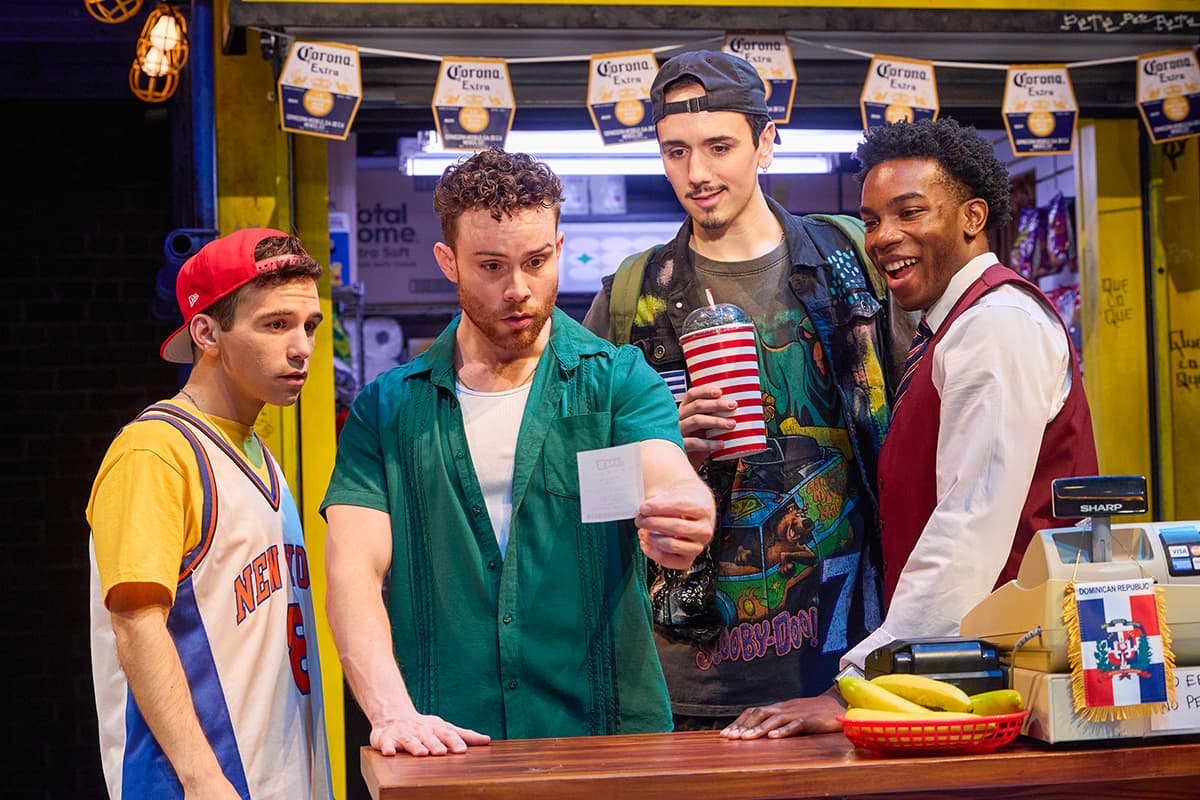
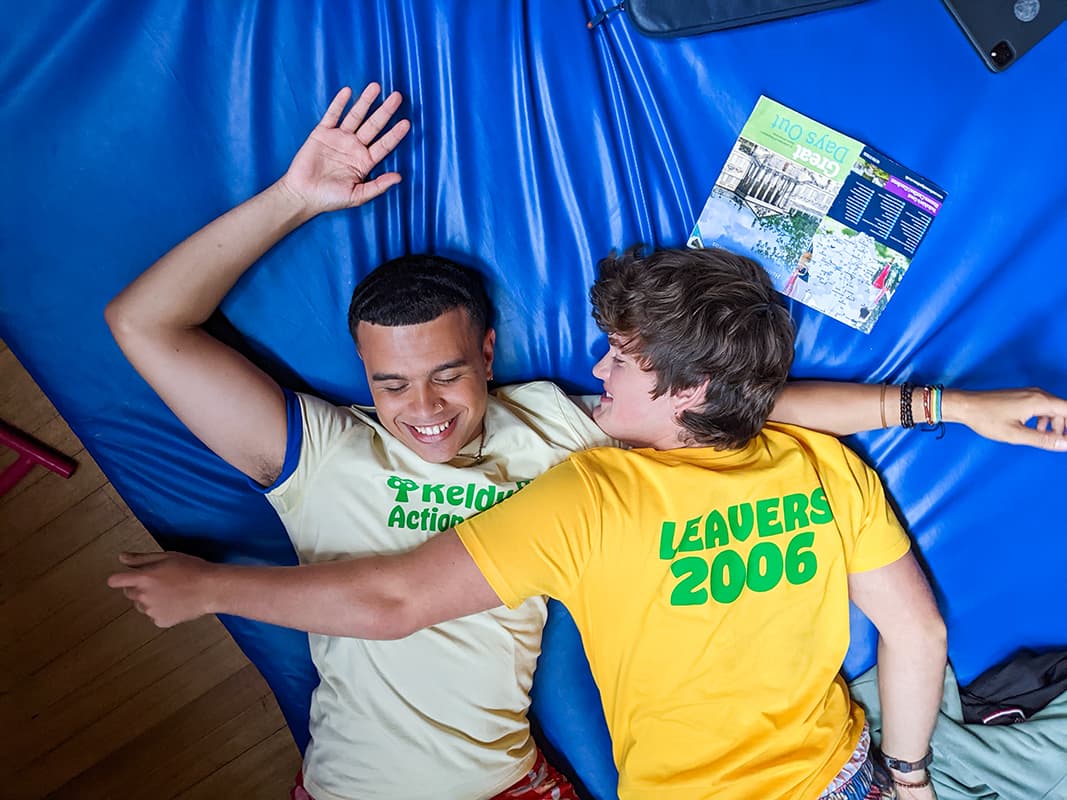
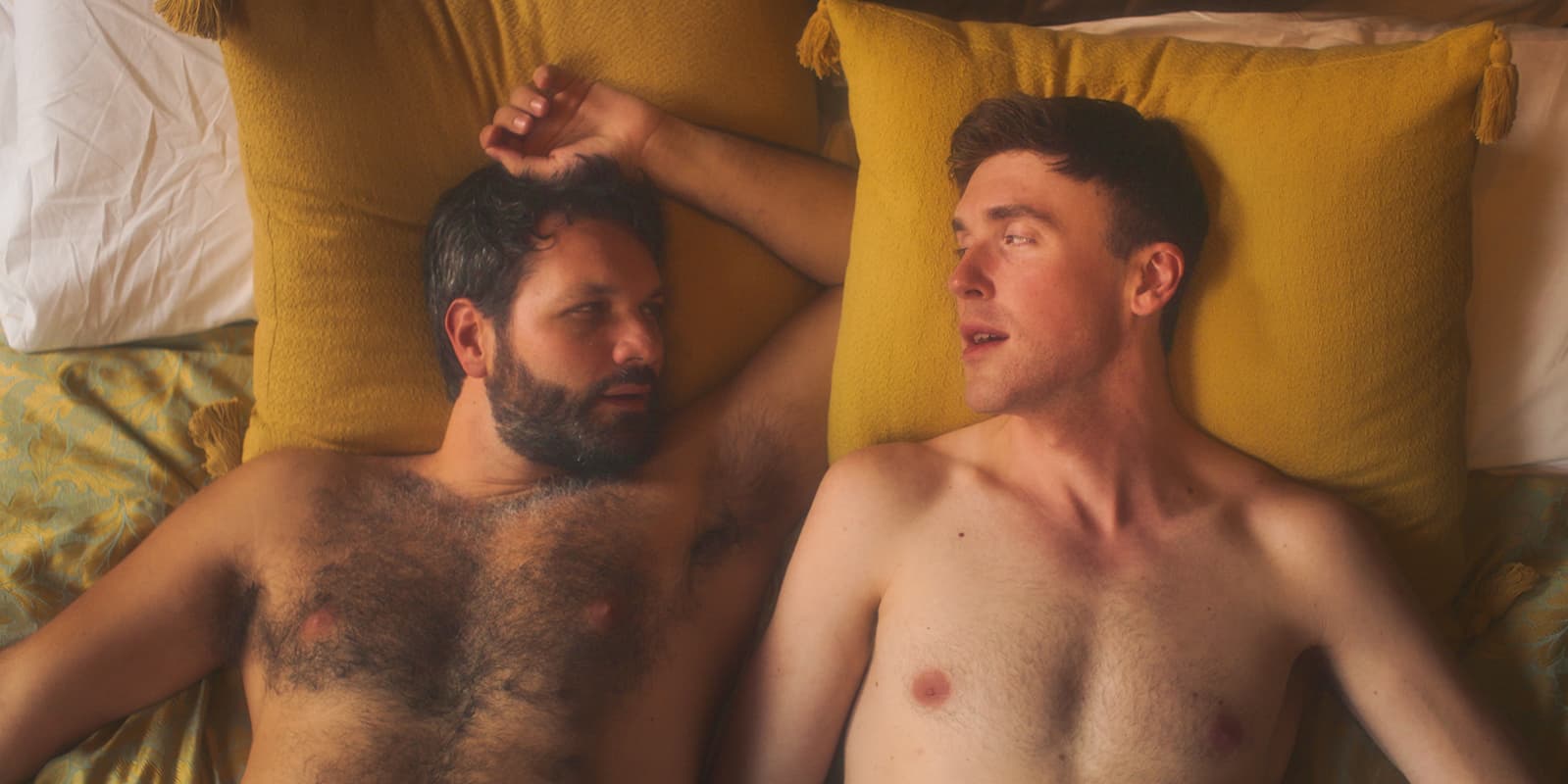
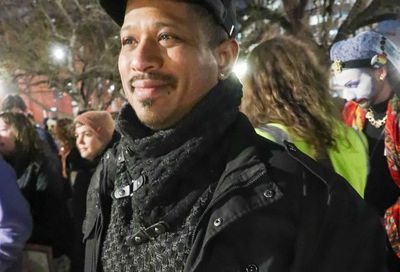
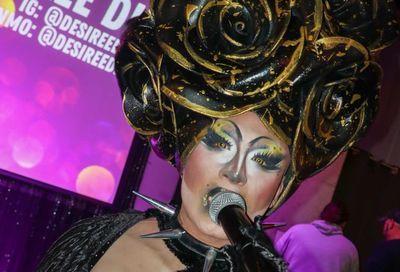

You must be logged in to post a comment.